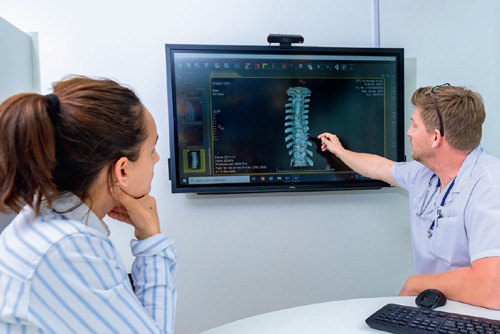Contact information for your neurosurgeon
- Pr. Karl Schaller, Tel : 022 372 82 01 ou 022 372 82 02
- Pr. Enrico Tessitore, Tel : 022 372 82 04
- Dr. Andrea Bartoli, Tel : 022 372 52 86
- Pr. Philippe Bijlenga, Tel : 022 372 34 26
- Dr. Marco Corniola, Tel : 022 372 52 86
Administrative office hours: Monday to Friday, 8 a.m. to 5 p.m.
To learn more

